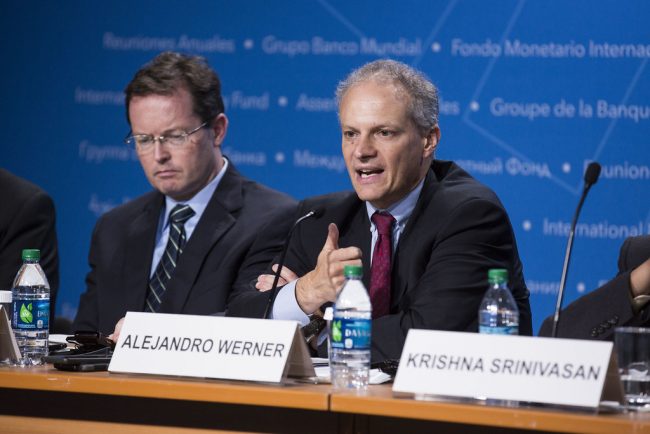A senior International Monetary Fund (IMF) official has warned that Latin America and the Caribbean (LAC) countries face the threat of another “lost decade” during the 2015–25 period amid the coronavirus (COVID-19) pandemic.
Director of the IMF’s Western Hemisphere Department, Alejandro Werner, in a blog posted on the IMF website under the caption Economic Policy in Latin America and the Caribbean in the time of Covid-19, said that, as of Thursday, an estimated 3,000 people had died from the COVID-19 virus in Latin America and the Caribbean.
“While the pandemic continues to spread across the region, countries are facing the worst economic recession since countries started producing national accounts statistics in the 1950s,” he wrote.
“The challenging external environment, coupled with much-needed measures to contain the pandemic, have led to a plummeting of economic activity across Latin America—where growth is poised to contract by 5.2 per cent in 2020.
“Given the dramatic contraction in 2020 and as countries implement policies to contain the pandemic and to support their economies—as emphasized in our previous blog—a sharp recovery in 2021 can be expected,” Werner said, adding “yet, even under this quick recovery scenario, the region faces the spectre of another ‘lost decade’ during 2015–25,” he added.
With atypical supply and demand shocks, a health crisis and high financing costs across the region, the top IMF official said the required actions to mitigate the human and economic costs of this crisis will be “quite daunting and will require an unprecedented approach.”
On the economic policy front, he said actions have varied, stating that countries have relied on direct transfers to vulnerable households (including an expansion of existing programs), relaxation of access requirements and expansion of unemployment insurance schemes, employment subsidies, temporary tax breaks and deferrals, and credit guarantees.
Werner noted that Central banks in the region have reduced policy rates and taken measures to support liquidity and to counteract “disorderly conditions” in domestic financial markets.
Additionally, given that the pandemic, the recession and the required policy responses will cause significant increases in public deficits and debt, the IMF official further urged regional countries to create fiscal space in the budget by reducing non-priority expenditure and increasing the efficiency of spending.
“Countries will need to ensure that policies taken in response to the crisis are not perceived as permanent and become entrenched and generate distortions—especially regarding targeted assistance to certain sectors,” Werner said.




